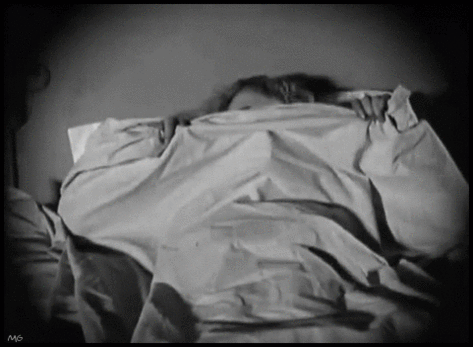My 10th book this year was the timeless gothic romantic novel 'Rebecca', by Daphne Du Maurier. First published in 1938 the novel follows a young woman who marries the older Max DeWinter, whose glamorous and beautiful first wife, Rebecca, recently died. The novel is full of eerie suspense and a sense of disquiet as the narrator recounts her tale of Manderlay, their house haunted by the memory of the late Rebecca DeWinter. 'Rebecca' is a captivating novel and not a challenging read. It would be a great read for those who don't often read the Classic novels and for those who fall asleep at the very mention of Dickens or Austen.
The narrator, a young and naïve woman, remains unnamed throughout the book, a clever literary technique designed to emphasise the lingering presence of the former Mrs DeWinter, however I just thought I had missed reading the narrator's name for the first few chapters and kept trying to look back for her name. Duh.
My first impression of the novel was that it was not as dark as I thought it would be. I imagined attacks in the night, hauntings, disembodied heads floating down long corridors (okay I didn't really imagine that)....
It is a common mistake for modern readers to hear the words gothic novel and expect the literary equivalent of Paranormal Activity. However, Gothic novels like Frankenstein, Northanger Abbey and Wuthering Heights rely on suspense, on a subtle yet all pervasive feeling of unease to bring a chill to reader's spines. This is a skill that has been lost in the modern age where filmmakers and authors require increasingly shocking and dramatic situations in order to make their audiences to feel frightened.
Daphne du Maurier masters the art of subtle unease and anticipatory dread in Rebecca. With each page turn you almost cringe (in my case it was mostly because my old copy was falling apart), not knowing when the state of uneasy calm will break.
One part of 'Rebecca' I found hilarious was when the characters in 'Rebecca' spoke about the weather being over 80 degrees Fahrenheit (about 26 degrees Celsius).
Well everyone could sure cope well with the weather in 1930's Britain...
For someone who lives in a rather temperate part of Australia, where the summer-time minimum temperatures sometimes do not dip below 26 degrees I had a good laugh at these wimps.
The Good bits
'Rebecca' was easy to read. The novel has all the conventions of a 19th century Gothic novel, but has been written in the 1930's and is full of familiar and not overly complex language. Old stodgy language normally turns off readers from attempting the classics (it stopped me for many years), so Rebecca is a good introduction before delving straight into Wuthering Heights or Frankenstein.
The Not So Good Bits
One character in the novel which really rankled me was a man, Ben, the 'local idiot'. This is the narrator speaking about Ben after meeting him on the beach.
This passage is meant to hold some irony, with Ben potentially knowing some crucial information later in the novel. However at the key moment, when du Maurier could have had Ben become much more than the local 'simpleton', he fails to do so, afraid of being mistreated, thus relegating Ben to the ranks of a truly useless character. It made me sad to read these descriptions of Ben, reminding me how many people with disabilities were (and still are) passed off as idiots and fools. The narrator in the passage above even supposing what Ben must be like without the slightest effort made to get to know or understand him. I am more than aware that times have thankfully changed since the 1930's, but too often in society, people with disabilities are brushed off just like Ben, not recognised for their own strengths, personalities and capacity.
Okay. Rant over.
Rating
3.5 out of 5 sweaty Englishmen
Want More?
Some other novels similar to Rebecca by Daphne du Maurier are;
The Next Book:
My next novel is The Rosie Project, by Graeme Simsion.
 |
| The book cover of Rebecca by Daphne du Maurier from the 70's edition I read. |
My first impression of the novel was that it was not as dark as I thought it would be. I imagined attacks in the night, hauntings, disembodied heads floating down long corridors (okay I didn't really imagine that)....
It is a common mistake for modern readers to hear the words gothic novel and expect the literary equivalent of Paranormal Activity. However, Gothic novels like Frankenstein, Northanger Abbey and Wuthering Heights rely on suspense, on a subtle yet all pervasive feeling of unease to bring a chill to reader's spines. This is a skill that has been lost in the modern age where filmmakers and authors require increasingly shocking and dramatic situations in order to make their audiences to feel frightened.
Daphne du Maurier masters the art of subtle unease and anticipatory dread in Rebecca. With each page turn you almost cringe (in my case it was mostly because my old copy was falling apart), not knowing when the state of uneasy calm will break.
One part of 'Rebecca' I found hilarious was when the characters in 'Rebecca' spoke about the weather being over 80 degrees Fahrenheit (about 26 degrees Celsius).
Well everyone could sure cope well with the weather in 1930's Britain...
For someone who lives in a rather temperate part of Australia, where the summer-time minimum temperatures sometimes do not dip below 26 degrees I had a good laugh at these wimps.
The Good bits
'Rebecca' was easy to read. The novel has all the conventions of a 19th century Gothic novel, but has been written in the 1930's and is full of familiar and not overly complex language. Old stodgy language normally turns off readers from attempting the classics (it stopped me for many years), so Rebecca is a good introduction before delving straight into Wuthering Heights or Frankenstein.
The Not So Good Bits
One character in the novel which really rankled me was a man, Ben, the 'local idiot'. This is the narrator speaking about Ben after meeting him on the beach.
This passage is meant to hold some irony, with Ben potentially knowing some crucial information later in the novel. However at the key moment, when du Maurier could have had Ben become much more than the local 'simpleton', he fails to do so, afraid of being mistreated, thus relegating Ben to the ranks of a truly useless character. It made me sad to read these descriptions of Ben, reminding me how many people with disabilities were (and still are) passed off as idiots and fools. The narrator in the passage above even supposing what Ben must be like without the slightest effort made to get to know or understand him. I am more than aware that times have thankfully changed since the 1930's, but too often in society, people with disabilities are brushed off just like Ben, not recognised for their own strengths, personalities and capacity.
Okay. Rant over.
Rating
3.5 out of 5 sweaty Englishmen
Want More?
Some other novels similar to Rebecca by Daphne du Maurier are;
 |
| The Picture of Dorian Gray, Oscar Wilde. Jane Eyre, Charlotte Bronte. Gone Girl, Gillian Flynn. |
The Next Book:
My next novel is The Rosie Project, by Graeme Simsion.










